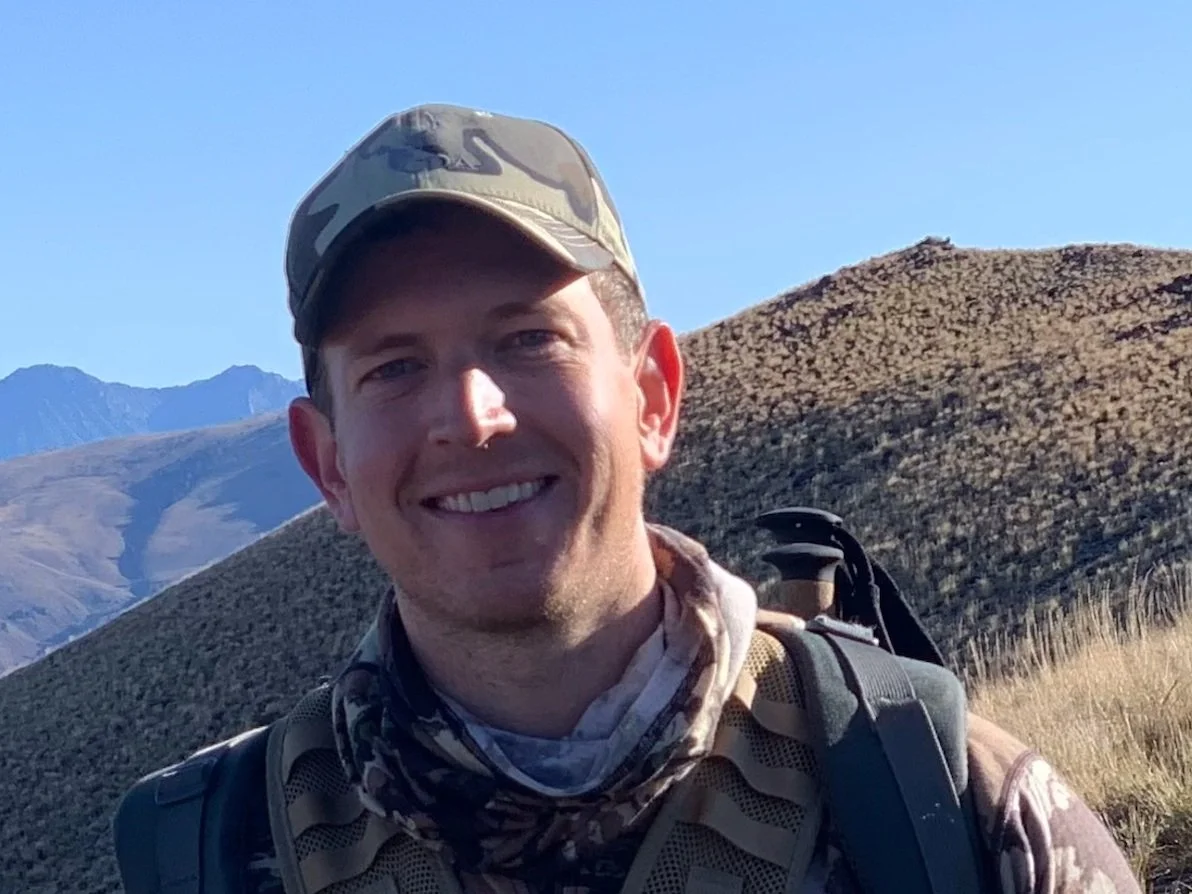Reflections: IWF Accomplishments in 2024
IWF supporters -
No other conservation organization in Idaho has a comparable ability to advocate for our outdoor traditions everywhere from town halls in rural communities to the state legislature. Since becoming the new IWF Executive Director this fall, I’ve been amazed by the capabilities and passion of our team. It continues to be the people of IWF who inspire me on a daily basis and I am proud to build on the legacy of this great organization.
I want to say thank you for supporting the Idaho Wildlife Federation. Our team is focused on a wide range of issues that impact Idaho’s fish, wildlife, habitat, public lands, and our shared ability to access those public lands and waters that we all cherish. Supporters like you are the reason IWF is the vanguard, fighting to ensure that our outdoor heritage is maintained and strengthened for ourselves and for generations to come.
I came to IWF through a love of hunting and fishing in Idaho’s wild places. I am keenly aware a strong, united voice that shares those values is essential as we navigate the impacts of our rapidly growing state on fish and wildlife. IWF is and will continue to be the Voice For The Wild.
Nick Fasciano, Executive Director, IWF
Here are just a few highlights of what we have been able to accomplish in 2024, followed by what we look forward to adding to our list of conservation wins:
IWF worked tirelessly in the 2024 legislative session. There was no shortage of bad bills that IWF beat back, but two deserve highlighting. SB 1340 was designed to allocate additional moose, bighorn sheep, or mountain goat tag to any outfitter who harvested a single wolf. We are confident we reflected the views of hunters across Idaho in our swift opposition to once in a lifetime tags being used to incentivize wolf harvest, and the bill never saw the light of day. Next, House Bill 469 would have prevented IDFG from adopting any rule that would prohibit the use of sabots, pelletized powders, or 209 primers in muzzle-loader only season. We remain steadfast in our belief that seasons and methods of take should be set by the Fish and Game Commission - not the legislature. Killing this bill in Committee was an example of the impact IWF and our supporters can have when we act together. As for positive legislation in this session, IWF strongly supported House Bill 404, which exempted detailed location data on wildlife collected by gps collars or other remote tracking from public requests; a loophole bad actors had taken advantage of, in clear conflict with fair chase values.
IWF, along with our conservation partners, secured important language in the Bureau of Land Management's final Western Solar Plan that excludes utility-scale solar energy projects on BLM lands with high use migration corridors and stopover areas for big game. Securing this language in the final Plan ensures that mule deer, elk, and pronghorn have the space to complete their migration without the large-scale disturbance that solar energy development poses on the landscape.
IWF engaged with counties and local residents in the Magic Valley on wildlife impacts related to Solar and Wind projects. 2024 was a big year for conserving wildlife habitat in the face of growing renewable energy development. IWF engaged the State of Idaho and Counties in the Magic Valley to avoid high quality winter range and big game migration areas when considering renewable energy projects. IWF always leads with the science - we use migration maps to tell the story of how big game animals navigate over large landscapes and how increased disturbance along those routes can negatively impact individuals and whole herds.
IWF participated in the IDFG organized Dworshak Elk Zone Sportsmen Working Group to explore ways to increase both cow and bull elk populations through the season setting process, in response to sportsmen opposition to recommended season changes. This group was able to reach consensus on recommended season changes to help move elk populations closer to objective without causing problems in areas of chronic depredation.
IWF worked to raise awareness on big game migrations in the Wood River Valley in the face of increasing recreation pressure. Thriving recreation in the Wood River Valley is putting increased pressure on wildlife that utilize the hills above the valley floor as both summer and winter range. We’ve been working with local community members to show land managers that recreation expansion should not come at the expense of our big game animals.
In the next year, there will be no shortage of conservation challenges that IWF will tackle. The health of our wild ungulate herds will continue to be threatened by development and habitat degradation, but also by the rising prevalence of Chronic Wasting Disease that has cropped up in more parts of our state. IWF will look to secure additional resources to combat this disease over the course of the next There will also be opportunities for milestones in some long standing campaigns. The chorus of voices calling for a free-flowing Snake River continues to grow and IWF has joined as a partner in a tribal-led campaign to further accelerate this progress.
As I look towards a bright future for IWF, I am asking you to join with us by committing financial support for the Idaho Wildlife Federation. We have the opportunity for some big conservation wins in the coming year, and we need your help to ensure that science-based wildlife management is front and center in these solutions. IWF is a lean and highly effective team, and every dollar you commit goes directly to achieving the goals of our programs. Stand with us, and give your support, as we fight to ensure that an abundance of fish, wildlife, access and opportunity are all part of our shared future.





